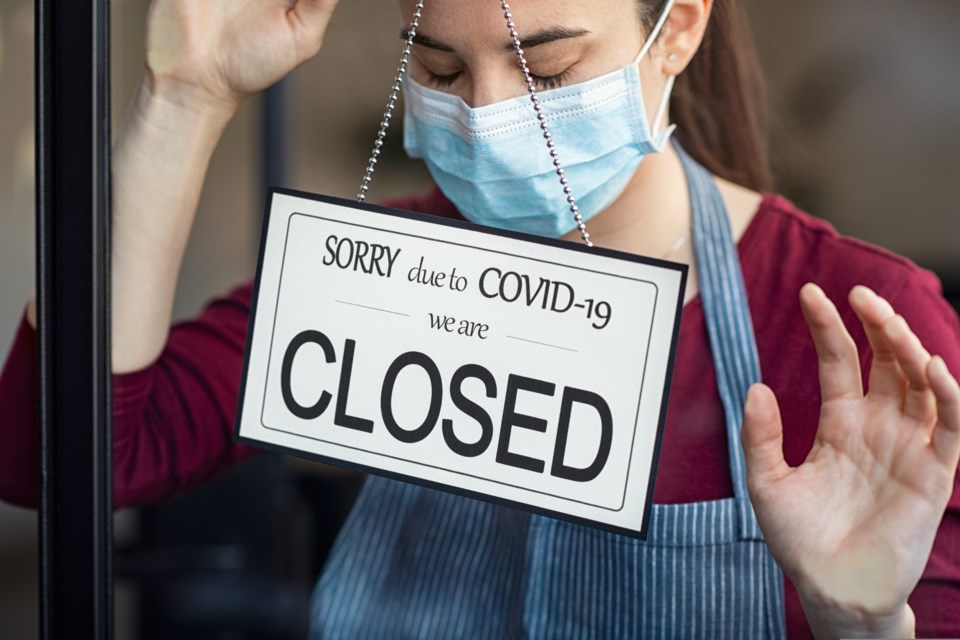Collin County Judge Chris Hill was on a fairly cordial warpath at the last commissioners court meeting for September. He called out the state again for its inaccurate COVID-19 estimations for the county. Then he turned his ire on the county’s third party vendor for delaying disbursements of the CARES Act funding for small businesses.
Some of those small businesses, he pointed out, have been waiting since noon on Sept. 4 when the $15 million small business grant program first opened for applications. A third-party administrator was hired to disburse the funds on a first come/first serve basis.
“They are not doing what we hired them to do,” Judge Hill said at the commissioners court meeting Monday.
Instead, the third-party administrator has been waiting to disburse the money until the last application was filed at noon on Friday, Sept. 25, according to the most recent CARES Act spending update.
Since the CARE small business grant application deadline, about 2,000 businesses have applied seeking help, and a good number of those submissions were submitted on Friday.
“We were pretty strong on what we wanted to see, and we are not seeing it,” Judge Hill continued. “We told them how we would like it to be done and it hasn’t been done the way that we’ve asked.
“If I was one of the first business owners who put in my application first and my business was barely hanging on and [then] having to wait on the last person to put in [their application], I would be frustrated.”
There also seems to be an issue with funding all of the Collin County small business owners who need help. “Friday was the deadline for applications to come in, and we have a concern that there is not enough funding for the small business program.”
The county has been reaching out to area cities and asked if they were willing to give back money from the CARES Act that they expect to use. Most of the funding was based on estimations of the maximum amount cities and businesses would need and not the actual amount needed. Several cities agreed to do so.
Commissioners were given documentation that highlighted how many businesses they would be able to help broken down by city. For example, in Plano, the raised cap would help 207 businesses while in McKinney, it would help 180 businesses. They estimate that the county would be able to help 538 businesses for $1.5 million.
If the money is already part of what has been allocated, then commissioners said they didn’t see a problem with raising the cap to help those businesses. But they didn’t vote to do so.
Speaking of estimations, Judge Hill also mentioned his frustration with the state’s COVID-19 estimated numbers again.
He pointed out that he checked the Collin County COVID-19 dashboard on Monday and saw that there were 24 new cases and 940 active cases. Then he looked at the data file and claimed that it was only showing 899 active cases instead of 940 cases.
“A difference of 41 may not be that significant, but it just leads me to wonder how they even know it is 940?” he asked his fellow commissioners who remained silent. “How do they know it isn’t 942 or 945? How do they know it’s not 950? If they don’t have details behind the number, how do they know that’s the number? Where does it come from?”
According to the Texas Health & Human Services website, “All data are provisional and subject to change.” The agency put the disclaimer in bold in the first paragraph on the page and at the top of the Excel file “Texas COVID-19 Active Case Data by County,” which can be downloaded from its website.
“So we continue to have that issue,” Judge Hill added. “And don’t have resolution on that and continue to have bad numbers provided to us by the state.”
Other items of interest:
- The Collin County court system expects jury trials to begin Oct. 1.
- A second public hearing was held in regards to the county’s subdivision regulation changes. No one from the public spoke.
- Not surprisingly, county commissioners approved the subdivision regulation changes to correspond with H.B. 3167, also known as the “Shot Clock Bill.”
- The bill is intended to speed up the review process to benefit developers and gives the county or city only 30 calendar days to respond to preliminary plats, preliminary subdivision plans, subdivision construction plans and final plats. County staff will also have only 15 days to respond to subsequent submittals.
- If a city or country fails to meet these deadlines, then the application is considered approved.




